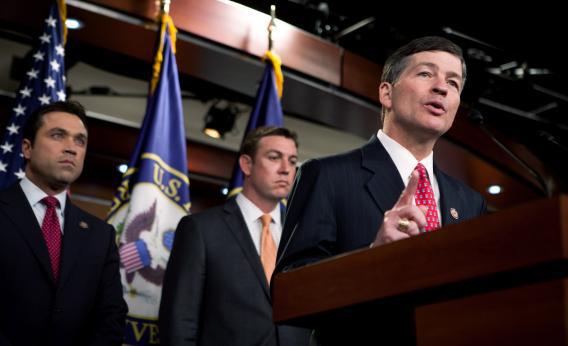Josh Eidelson has the inevitable post-election article in which the head of the AFL-CIO makes the inevitable promise that Democrats can’t take organized labor for granted in the future, and he’ll be building more independent capacity and focusing on labor’s real friends.
Meanwhile, consider the case of Rep. Michael Grimm. He’s a Republican from a district mostly composed of Staten Island, N.Y. Staten Island is known as conservative by New York City standards. And it is. Barack Obama carried it by a 50-49 margin rather than the 79-20 margin he got in, say, Queens. But obviously Grimm wasn’t in a position to take anything for granted given those circumstances. So he’s got to be thanking his lucky stars that he was able to count on the support of the building trades unions and the firefighters union along with several postal unions and the New York State Fraternal Order of Police. That strong union support helped him get a fairly narrow win with 53 percent of the vote. And what’s most important is that while Grimm is a relatively moderate Republican, he’s not especially moderate. He voted for Paul Ryan’s budget—giant tax cuts, Medicare privatization, huge cuts to Medicaid and all domestic discretionary programs. He just got this union support on the basis of backing the Davis-Bacon Act (which was hardly on the verge of being repealed over Obama’s veto) and some pork for emergency services workers.
Which is just to say that organized labor is a pretty cheap date at this point.
For a Republican, especially, the unions are really just asking for you to throw them a bone or two. Agree with them on a couple of small-bore topics of particular interest and they’re happy to overlook wholesale ideological disagreement. But what you see is that relatively few Republicans are interested in the cheap date. If you saw more Republicans taking these cursory steps to court labor support, then presumably you’d see more Democrats offering higher bids. But while there used to be plenty of Grimm-style Republicans in the Northeast and the Midwest, these day they’re quite thin on the ground. So there’s really not much leverage there. And while labor leaders may complain about Democrats being too business friendly or inadequately supportive of labor issues, virtually the entire Democratic caucus passes the Michael Grimm Standard without breaking a sweat.
